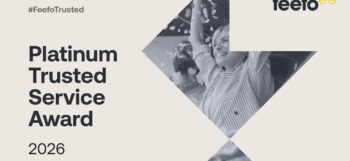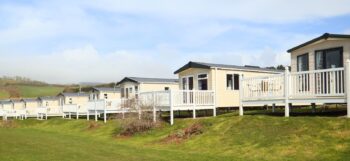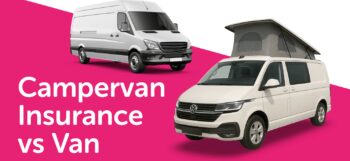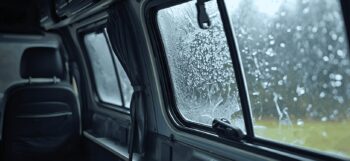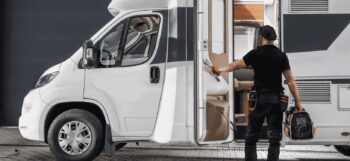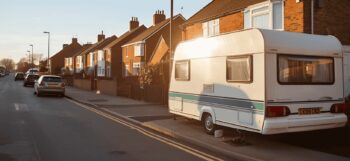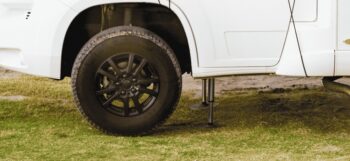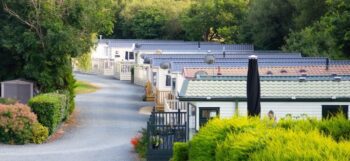Owning a touring caravan is an exciting prospect for many, offering the freedom to explore the UK and beyond on your own terms. However, while the initial purchase price may be the most obvious cost, it's important to understand that the true cost of owning a touring caravan extends far beyond that. In this article, we’ll break down the hidden and ongoing expenses associated with caravan ownership, ensuring you’re fully prepared for what’s involved.
When considering purchasing a touring caravan, it’s easy to focus on the upfront cost. But there are many additional costs to factor in that can quickly add up over time. Understanding the true cost of owning a touring caravan will help you make informed decisions and budget more effectively. These costs cover everything from maintenance and insurance to storage and security. Here’s what you need to know.
The Initial Purchase Price
The cost of buying a touring caravan can vary widely, depending on several factors, such as whether it’s new or used, its size, brand, and the features it offers.
Remember, just because a caravan is cheaper doesn’t mean it will be the most cost-effective in the long run. Older caravans may require more maintenance and repairs, so always consider the total cost of ownership over the lifespan of the unit.

Storage Costs
If you don’t have space to park your caravan at home, secure storage will be an ongoing cost you need to factor in. When not in use, a caravan needs to be stored in a secure, weather-proof location.
Prices for storing a touring caravan vary depending on location, facility type and the length of your caravan. You can expect to pay less annually for outdoor storage in a secure compound, while indoor storage is generally more expensive, but offers added protection from the elements.
When selecting a storage facility, consider security features like CCTV, access control, and whether the site is manned. Proximity to your home can also influence costs, with storage locations closer to urban areas often costing more.
Maintenance and Repairs
Maintaining your caravan is essential to ensure its longevity and functionality. Repair and routine maintenance costs should be carried out by professional caravan engineers at approved workshops and typically include:
- Repairs - Common repairs for caravans include fixing leaks, replacing tyres, and servicing the heating or water systems.
- Annual habitation checks – A detailed inspection of your caravan’s gas, water, electrical, and ventilation systems. It helps to identify potential issues before they become serious problems.
- Mechanical Checks - Includes servicing the brakes, suspension, and running gear to ensure your caravan is roadworthy. Checks cover the breakaway cable, linkages, chassis, corner steadies, jockey wheel, and tyres for wear, damage, or required replacements.
Regular maintenance is crucial to prevent unexpected breakdowns and ensure the safety of your caravan. It can also help to keep your warranty and your insurance valid.
Security Upgrades
A touring caravan is a significant investment, so protecting it from theft and damage should be a priority. There are a number of security upgrades you can invest in to safeguard your caravan.
- Wheel Clamps and Hitch Locks: A basic security measure, but can act as a visual deterrent for thieves.
- Alarm Systems and Trackers: Installing a caravan alarm system or a GPS tracker can help deter thieves and provide peace of mind.
Investing in security is a small price to pay compared to the potential financial loss of having your caravan stolen.
Campsite and Touring Expenses
One of the joys of owning a touring caravan is the ability to explore new places. However, these adventures come with their own set of costs.
- Campsite Fees: Campsites vary in price depending on location, season, and facilities. On average, you can expect to pay around £25 and £50 per night for a pitch, with some sites charging higher rates during peak season. Some sites will charge per person and some charge for extras like, like putting up an awning, hiring a fire pit and number of dogs.
- Fuel Costs: Towing a caravan impacts your fuel consumption. The larger and heavier your caravan, the more fuel you’ll use.
It’s important to budget for these ongoing expenses to ensure your travels remain affordable.

Additional Upgrades and Accessories
As a caravan owner, you may find that you need or want various upgrades and accessories. These could include:
- An awning: To extend your living space and provide outdoor shelter.
- Solar panels: To help power your caravan’s lights and small appliances.
- Caravan motor mover: A motorised device that makes it easier to manoeuvre your caravan.
- Stabiliser hitch: To reduce sway when towing.
- Tyre pressure monitoring system (TPMS): Alerts you to low tyre pressure.
- Extended towing mirrors: To improve visibility when towing.
- Upgraded jockey wheel: A heavy-duty jockey wheel for better manoeuvrability.
- Winter pipe insulation: To prevent freezing in colder months, if a wintering pack has not already been installed.
- Satellite dish or TV aerial: For better reception.
- Wi-Fi booster: Improves internet access in remote areas.
- General accessories: For cooking, eating, sleeping and outdoor accessories such as portable BBQ, table and chairs, windbreaks.
These upgrades can make your caravanning trips a more home-from-home experience, but they can also add significant costs.
Depreciation
Caravans, like most vehicles, lose value over time. According to Big Outdoor Adventure, touring caravans typically depreciate by around 20% in the first year after purchase. After this initial year, the depreciation rate slows to approximately 15% annually until the caravan reaches ten years of age. Beyond ten years, the depreciation rate further decreases to between 5% and 10% per year. The rate of depreciation generally slows after the first few years, but caravans will continue to lose value as they age.
Factors that influence depreciation include:
- Condition: Well-maintained caravans hold their value better than those with signs of wear and tear.
- Brand and model: Premium brands and popular models tend to depreciate slower than budget options.
- Market demand: The popularity of certain types of caravans can also affect depreciation rates.
Unexpected Costs
Even with the most thorough planning, unexpected costs can arise. These may include:
Emergency repairs: This could come in the form of a burst tyre, broken appliance, or other issues that may need immediate attention.
Weather-related damage: Storms, frost, or water damage can result in costly repairs.
It’s always a good idea to have a contingency fund for these unforeseen costs.

Budgeting for the True Cost of Caravan Ownership
To manage the true cost of owning a touring caravan, consider these budgeting tips:
Create a detailed budget: Carry out some research and estimate your annual costs, then set aside a fixed amount for things like maintenance, storage, and security.
Track your expenses: Keep a log of all your caravan-related expenses. This will help you identify areas where you can cut costs.
Set up a contingency fund: Aim to save at least 10–15% of your estimated yearly costs for emergencies and unexpected repairs.
By properly budgeting and planning, you can enjoy all the benefits of caravan ownership without breaking the bank.
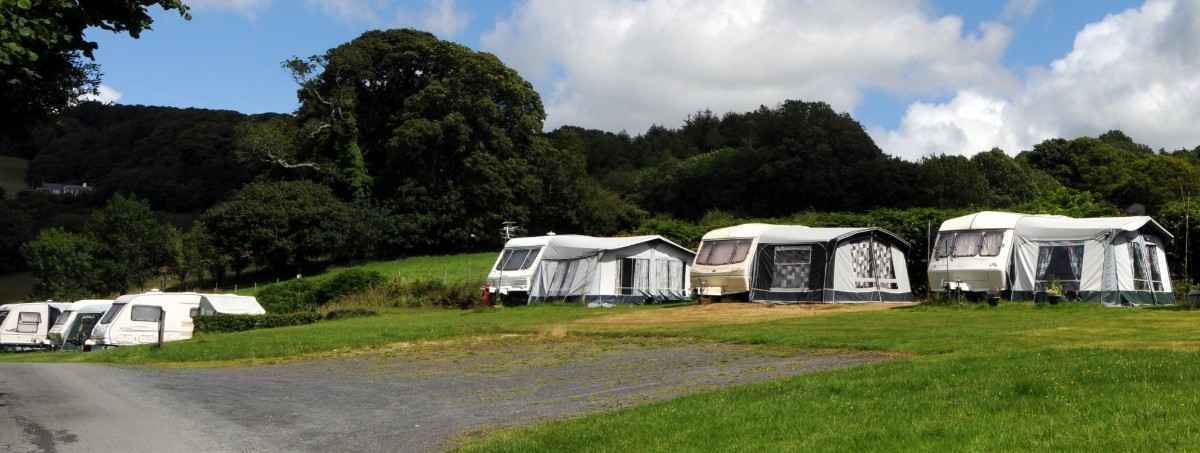
Insurance
Touring caravan insurance is a necessary consideration for protecting your investment. While it’s not a legal requirement to insure your caravan, insurance is there to help to cover you in case of accidents, theft, or damage to your caravan or belongings.
We've been helping people with caravan insurance for over 20 years, so we know how to help find a suitable policy for you and your caravan. Remember, no policy protects you against every scenario, but our polices provide:
- New for-old or market value cover, depending on the age and value of your caravan
- Caravan contents cover up to £5,000 for theft, damage or loss
- Theft and attempted theft so if your caravan is stolen or someone tries to steal it, you have cover for the damage or loss
- Cover for furniture kept in the awning while the caravan is in use
- Storm and flood cover
- Cover against risk of fire, explosion, lightning or earthquake
- Accident cover which offers cover to protect the caravan and remove it to the nearest repairers
- Up to 180 days cover for European travel
You can also add optional extras such as key cover, substitute vehicle and legal expenses cover and caravan breakdown cover to offer additional peace of mind while you’re out on the road.
So why not get a quote online at or give us a call on 01480 402 460. We’d love to help you protect your adventures!
Policy limits and exclusions may apply, please see the policy wording for full terms and conditions.
FAQs
What are the main costs associated with owning a caravan?
Owning a caravan involves several ongoing expenses, including servicing, insurance, storage, pitch fees (if sited on a holiday park), maintenance, fuel, and accessories. There are also one-off costs for equipment and optional extras.
Do I need to pay for annual servicing and habitation checks?
Yes, annual servicing and habitation checks are recommended to maintain your caravan’s roadworthiness and safety. Some warranties and insurance policies may require proof of regular servicing.
What additional costs are associated with caravan ownership?
Additional costs may include site fees when staying at caravan parks, fuel for towing, gas and electricity usage, and maintenance supplies. Unexpected repairs can also add to overall costs.
Is caravan insurance mandatory?
While caravan insurance isn’t a legal requirement, you should consider protection against theft, accidental damage, and other risks. Some storage sites and holiday parks may require proof of insurance.
How much does it cost to store a caravan?
Storage costs vary depending on location, security, and the type of facility used. Some owners choose to store their caravan at home, but this may require additional security measures.
What are the hidden costs of caravan ownership?
Unexpected expenses such as emergency repairs, increased fuel consumption when towing, or replacing essential components like tyres and appliances can add up over time.
How can I manage the cost of caravan ownership?
Regular maintenance, choosing an appropriate insurance policy, and budgeting for running costs can help manage expenses. Some owners also join membership schemes for discounts on campsites, fuel, and accessories.
Disclaimer: The sole purpose of this article is to provide guidance on the issues covered. This article is not intended to give legal advice, and, accordingly, it should not be relied upon. It should not be regarded as a comprehensive statement of the law and/or market practice in this area. We make no claims as to the completeness or accuracy of the information contained herein or in the links which were live at the date of publication. You should not act upon (or should refrain from acting upon) information in this publication without first seeking specific legal and/or specialist advice. Arthur J. Gallagher Insurance Brokers Limited trading as Lifesure accepts no liability for any inaccuracy, omission or mistake in this publication, nor will we be responsible for any loss which may be suffered as a result of any person relying on the information contained herein.
FP262-2025


